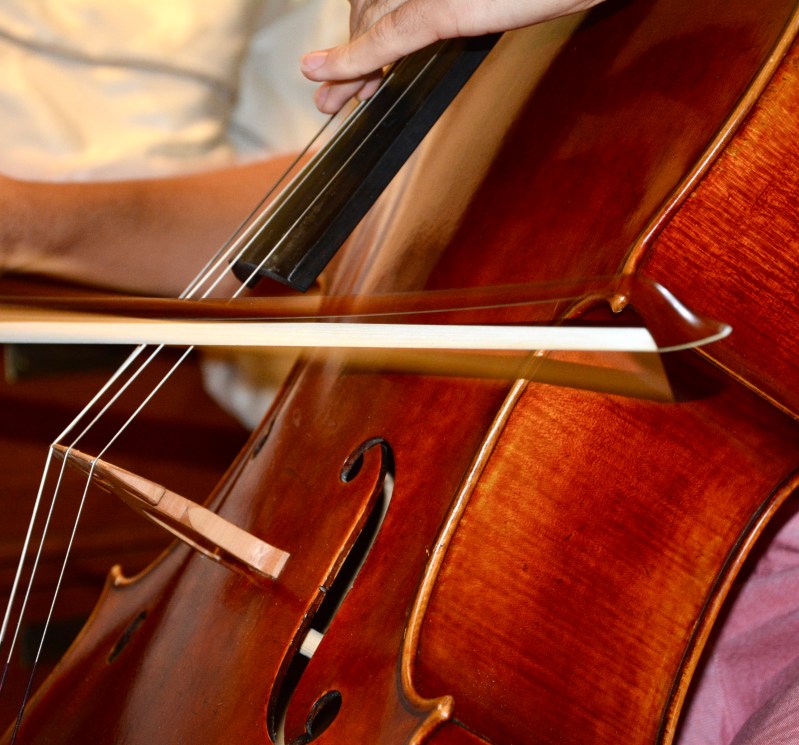Huanvy Phan ’20 had grown to love violin rehearsals, however grueling and difficult. Rehearsals had been a constant in the past seven years of her life, and she loved the accomplishment that accompanied the exhaustion. As college approached, however, it grew increasingly clear that her orchestra days had come to a close.
“I knew I wasn’t going to practice on my own, and I knew I was going be more occupied with different things,” she explains. “Ultimately, I decided to leave my violin as literal baggage at home.”
Musical instruments are indeed symbolic baggage. For many students, they represent years — often close to a decade — of physical and emotional effort. But as freshmen undertake the transition to college, they are forced to confront reality: The music world is incredibly competitive, and serious musicians require hours of daily practice — an obligation to which most are unwilling to commit.
“If I pursued violin, it would only get more and more competitive because there are so many great violinists out there,” says Samuel Kwong ’20. “The time commitment is crazy.”
Even for the casual musician, there is little time in the college lifestyle for regular rehearsal. On days with barely enough time for lunch, it is difficult to imagine even an extra half-hour for music.
And so, many students who have been musicians for nearly all of their lives choose to give up their instruments. For some, the hassle of carrying an instrument is not worth the risk of damage and likely disuse.
“I was considering bringing my guitar here, but because I’m from the East Coast, it was a lot to fly over here,” says Madison Hurr ’20. “It’s also precious to me, so I didn’t want to harm it. I figured if someone else here had a guitar, I could just jam on theirs.”
Others chose to leave their instruments behind in order to explore different extracurricular options. For Mitchell So ’20, allowing room to explore required giving up his instrument of nine years.
“It was a time commitment thing,” he explains. “I’m on the fencing team, and I wanted to expand into other clubs. So I just decided to leave my violin.”
But while it is easy to leave behind an instrument, it is not so easy to leave behind the music. For even when the music stops — when the last strands of Vivaldi fade, when the guitar picks are tucked away, when instruments are folded into cases and left thousands of miles away — the music continues.
“My interest never died in violin,” Kwong says. “To this day, it’s never died.”
Some students rediscovered music’s sense of unity and accomplishment through other pursuits. Phan joined the K-pop dance group XTRM.
“I get that thrill of performing arts through dancing now,” she says.
For others, music has had a subtler effect — a lasting appreciation for performing arts, improved memory and academic discipline. Music in general provides students a mental release from stressful events.
According to Hurr, “Whenever I listen to music, I just feel more relaxed — more happy. I think that music brings people together too. Whenever I have people in my dorm room, I turn on some music.”
Still, other outlets are often not the same. The joy of performance is not quite replicated by occasionally playing the dorm piano or practicing on a friend’s instrument.
“Every once in a while, my friends in orchestra let me play their violins,” So says. “It’s kind of nostalgic. I kind of miss it, but it doesn’t feel the same because it’s not my own instrument.”
All four students expressed an interest in returning to music in the future. In particular, So and Hurr linked music to their homes.
“When I go home,” So says, “I’ll play it again.”
Hurr adds that she hopes to eventually bring her instrument to school: “When I go home, I’m thinking of bringing my guitar back with me because this is my home now, and maybe I should have that part of me here.”
For Kwong, violin has continued to be part of his life through music therapy. Nearly a decade ago, his brother founded a group that performs in senior citizen homes. The group, In the Light, performs primarily during summer or winter breaks.
Kwong finds the experience extremely rewarding: “I’m happy that I can still utilize my skill for violin to bring music to older folks.”
Indeed, though all four students no longer pursue their original instruments, music has continued to play a role in each of their lives.
“Playing music just makes me happy,” Hurr says. “I can’t live without music.”
Contact Xinlan Emily Hu at xehu ‘at’ stanford.edu.
